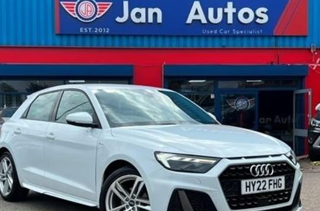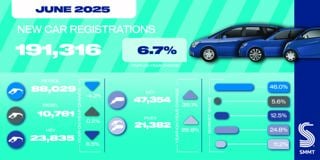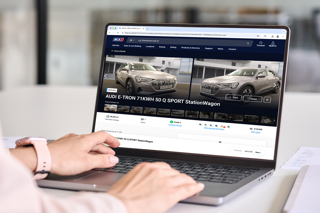Administrative problems for plug-in car and van grants could result in money due to dealers being delayed and even withheld, claims Malcolm Pearson, group fleet director at Stoke-on-Trent based Holdcroft Motor Group.
He is in discussions with the Office for Low Emission Vehicles (OLEV) in a bid to bring clarity to the grant application process on behalf of the industry. However, OLEV told AM sister-title Fleet News all paperwork was “perfectly clear”.
Leasing companies gave a mixed response with some not following OLEV’s guidance and others admitting it was confusing. However, motor manufacturers, including Nissan and Mitsubishi, claimed the guidance was clear.
Pearson said following the launch of the Mitsubishi Outlander PHEV, Holdcroft’s focus had turned to the grant application process.
Between summer and the end of this year the dealership will have handled approximately 500 fleet orders for plug-in vehicles, almost exclusively for the Outlander PHEV, compared with virtually none previously.
“Different interpretations are being made as to the definition of a fleet customer when a plug-in vehicle is supplied to a business that leases its vehicles,” said Pearson.
“OLEV considers the end-user company car driver or the business’s fleet manager to be the customer, but some leasing companies believe they are the customer because they own the vehicle.”
He said OLEV’s requirement for two invoices to meet grant application audit requirements and for the customer name on the order form to match the vehicle delivery address on the invoice was also proving problematic. Furthermore, leasing companies’ own systems could typically cope only with one vehicle invoice.
Grants, worth up to £5,000 for a car and £8,000 for a van, are paid monthly by OLEV directly to vehicle manufacturers, which are then responsible for arranging payment to individual dealers.
OLEV requires an order form to be completed that includes customer contact details, which it identifies as the company vehicle driver or fleet manager at the end-user business if leasing, as well as the financer’s contact details.
It also requires that address details match the delivery address on invoices.
Customers must also complete a survey asking them about their business and the decision to introduce a plug-in vehicle to their fleet.
The order form makes it clear in small print that the ‘end-driver’ completes the survey or the fleet manager at the end-user business.
OLEV said Pearson is the first person to raise concerns about interpretation of the paperwork and as a result he is going to provide a ‘process map’ so civil servants can better understand how the fleet industry functions, particularly when vehicles are leased.
“The financer is the leasing company, but the customer is the end-user,” added an OLEV spokesman.
“Similarly the questionnaire should be completed by the end-user driver or the fleet manager.”
There is concern that if the survey is completed by leasing companies as ‘the customer’, the Government may think grants are reaching only major organisations and not SMEs.
As a result, it could jeopardise the long-term future of the programme.
Pearson said: “Ultimately, OLEV may refuse to honour a grant to a manufacturer, which may then take the money off the dealer which is then left thousands of pounds out of pocket.”
Lex Autolease said it has no problem with the questionnaire, but admitted that the order form was not so clear.
Principal consultant Chris Chandler said: “I believe there are a few options regarding who completes it – the leasing company or the fleet operator.”
Meanwhile, a Venson Automotive Solutions spokesman said: “OLEV’s advice is ambiguous. The sentiment behind the paperwork is right, but it does need to be clearer so that everyone is working in the same way.”
Steve West, head of fleet support at LeasePlan UK, said manufacturers had “made the grant application process much more complex by taking a different approach to interpreting the guidelines”.
However, a Mitsubishi spokesman said: “We have not had a problem in following OLEV’s guidance.”
Pearson concluded: “It is in the interests of the entire fleet industry that vehicle manufacturers, leasing companies and dealers all adopt exactly the same processes and systems and ensure there is no ambiguity.”



















gezza06 - 05/11/2014 09:23
It's a typical Government scheme run by people who have no idea about the motor industry. Why else would you have to send a "manual" invoice to them leaving out delivery charges, include any VED but not FRF and any other options like metallic paint!!! Surely they can see from the original invoice that the vehicle qualifies for the Grant? However I must say that I think it is obvious who should complete the survey: the user of the vehicle and not the financiers.